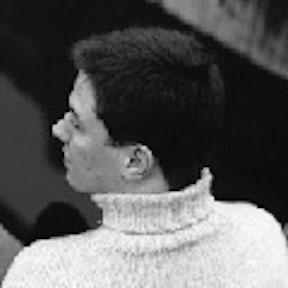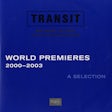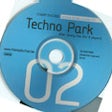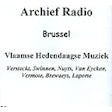Stefan Van Eycken

Stefan Van Eycken
"To say that ‘timbre’ is at the heart of my sound world, is not so much to underline a priority as it is to characterize a way of hearing in which qualities that cannot be measured or explained quite so easily (if at all) occupy centre stage. Characteristics that are traditionally more form-defining (such as pitch and rhythm), to me, are emergent aspects of timbre and/or hinted at by bodily energies. The music that results is one in which degrees of presence and absence, of definition and focus, of nearness and distance, of stability and volatility are constantly renegotiated. To the extent that they partake in this shadow play, electronics are decidedly lo-fi and used in the spirit of bricolage to allow for an exploration of the cracks and weeds between "systems". I have always felt that there is as much potential for magic in a piece of wood with some holes in it as there is in the latest piece of electronic equipment. To quote the Schlippenbach Trio: "gold is where you find it". (Stefan Van Eycken)
"To say that ‘timbre’ is at the heart of my sound world, is not so much to underline a priority as it is to characterize a way of hearing in which qualities that cannot be measured or explained quite so easily (if at all) occupy centre stage. Characteristics that are traditionally more form-defining (such as pitch and rhythm), to me, are emergent aspects of timbre and/or hinted at by bodily energies. The music that results is one in which degrees of presence and absence, of definition and focus, of nearness and distance, of stability and volatility are constantly renegotiated. To the extent that they partake in this shadow play, electronics are decidedly lo-fi and used in the spirit of bricolage to allow for an exploration of the cracks and weeds between "systems". I have always felt that there is as much potential for magic in a piece of wood with some holes in it as there is in the latest piece of electronic equipment. To quote the Schlippenbach Trio: "gold is where you find it". (Stefan Van Eycken)
Stefan Van Eycken studied musicology at the Katholieke Universiteit Leuven and also took summer courses in English literature at the University of Edinburgh and composition in Avignon (with Marco Stroppa). In 1997 he returned to the Musicology Department in Edinburgh to begin on a doctorate on the work of Brian Ferneyhough. There he also taught analysis and aesthetics of contemporary music. In October 2000 he moved to Tokyo for a year on a Japan Foundation Fellowship in order to work as a researcher at the Kunitachi College of Music on a book devoted to the music of Yuji Takahashi. He continues to live and work in Tokyo, where he has also built close contacts with practitioners of improvised and traditional music (such as gagaku). He regularly spends time in Belgium, where he has a Fellowship with the Ictus ensemble (the first of its kind).
Selective bibliography
- S. VAN EYCKEN, Il fiume del tempo passava...: een traject doorheen het oeuvre van Luc Brewaeys, Vlaanderen 47 (4), 1998, p. 193-202
- K. VAN DEN BUYS, Muziek zonder grenzen, in Muziek en Woord 27 (326), 2001, p.12-13
- M. DELAERE, De structuur van het muziekleven in België, in Een muziekgeschiedenis der Nederlanden, uitg. door L. GRIJP, Amsterdam, 2001
Since 2000 Based in Tokyo, Japan.
1997-2000 Research and teaching at the University of Edinburgh (UK).
1997 Composition classes with Marco Stroppa, at the Centre Acanthes, Avignon (FR).
1993-1997 Studies in Musicology at the University of Leuven.
Key Works:
INDEFENCE OF THE WIND BENEATH THE DOOR (2008) for electric guitar and string quartet.
TECHNOPARK (after closing time) (2004) for eight players and lo-fi electronics.
A FEELING OF SOMETHING HAPPENING (2003) for five players.
ARCHITECTURES OF REASSURANCE (2003) for orchestra.
(JUST LIKE) STARTINGOVER (2003) for flute, clarinet, violin, cello and piano.
IF YOU FACE IT (2002) for eight players.
SUPPLEMENT (…tinfoil tiaras) (2002) for piano with e-bows and optional film.
WHITE RIVER DREAM SONG(2001) for six players and electronics.
TWILIGHT ENCLOSURES (2001) for oboe and piano.
CAMPOMINATO (1997) for piano with assistant.
Release
Discover Stefan Van Eycken also among:
Contemporary composers
In 2020, Flanders Arts Institute made an overview of contemporary composers in Flanders.
Flanders Arts Institute
Expertise centre for performing arts, music and visual arts.




